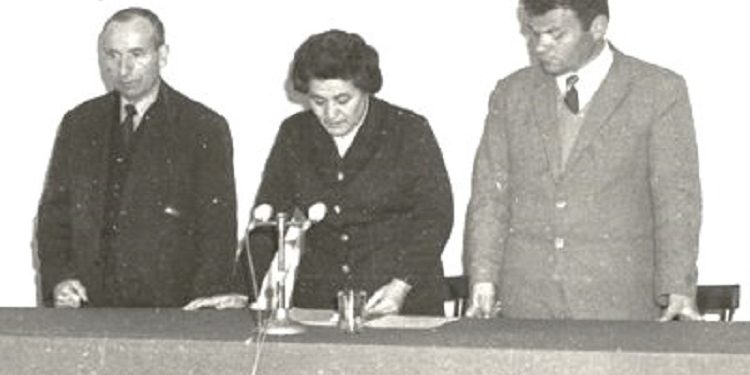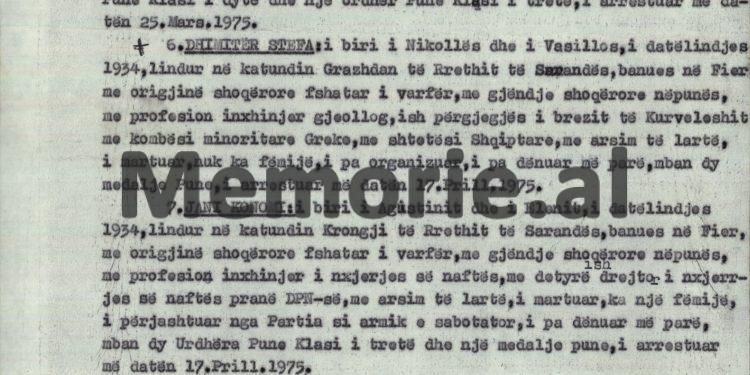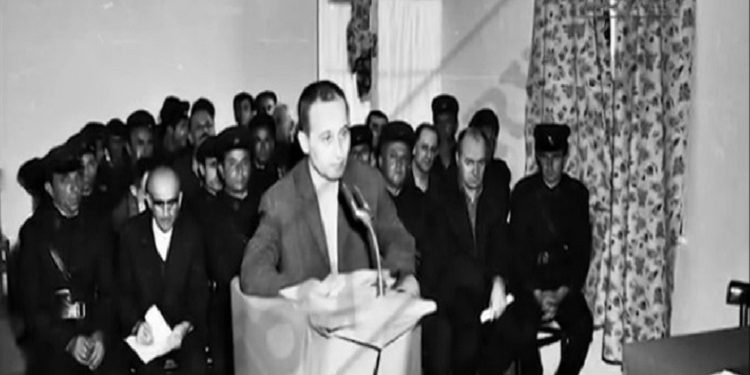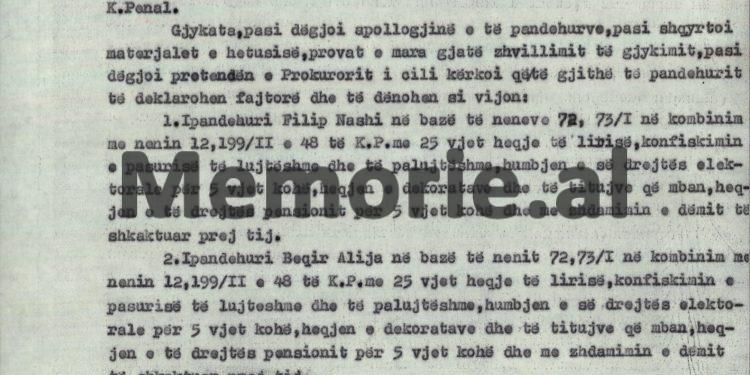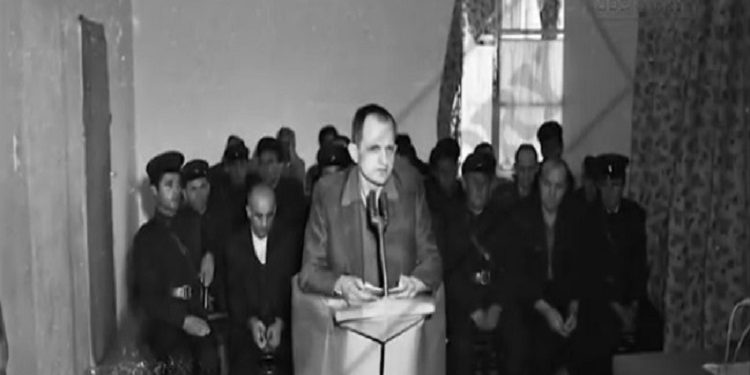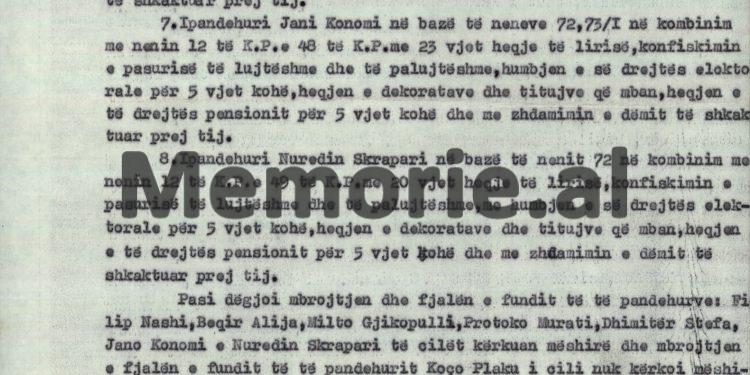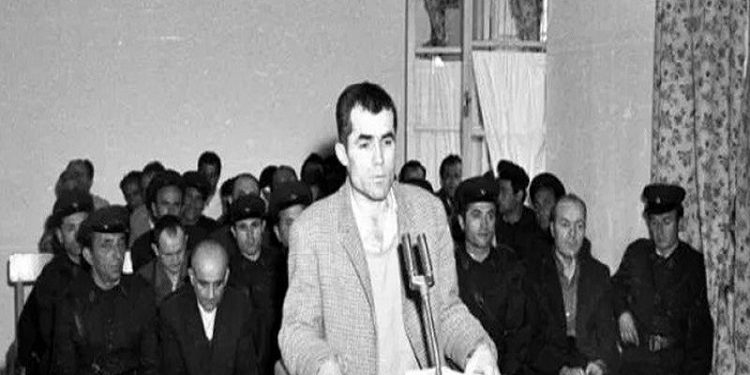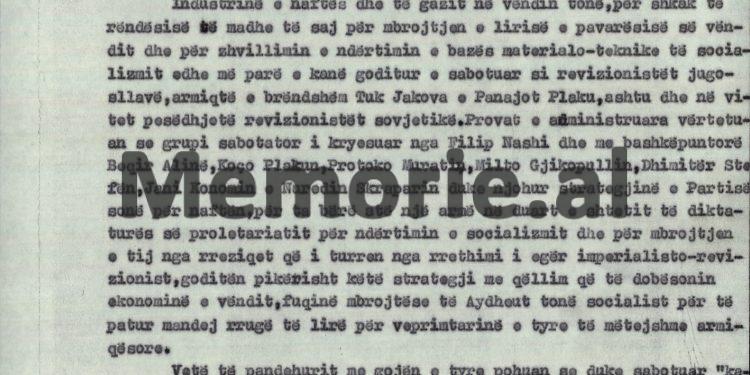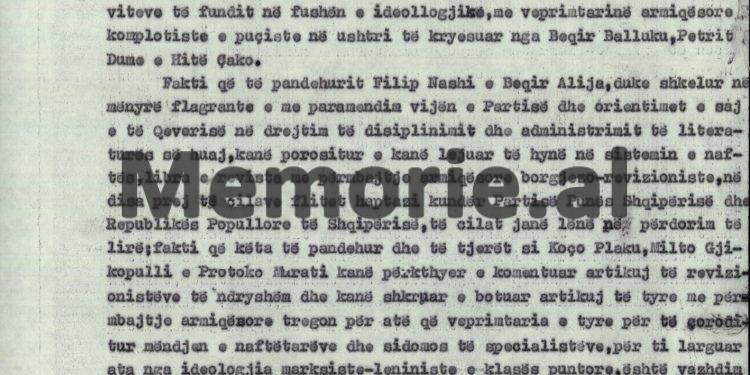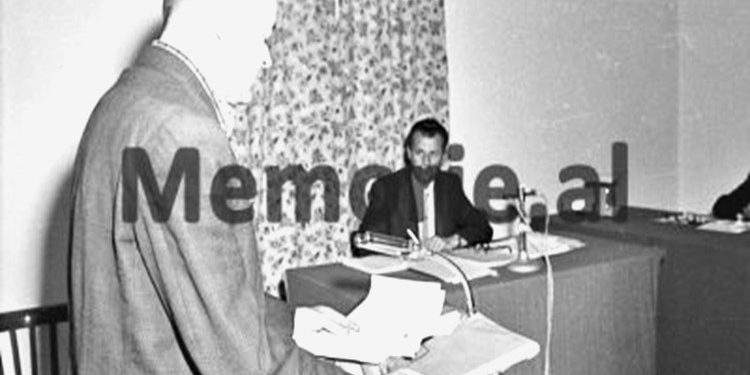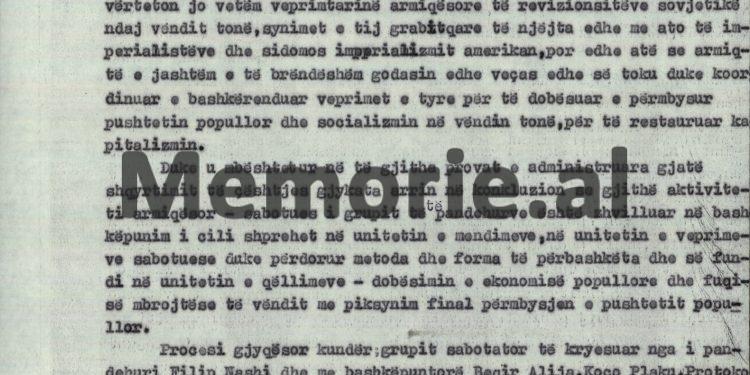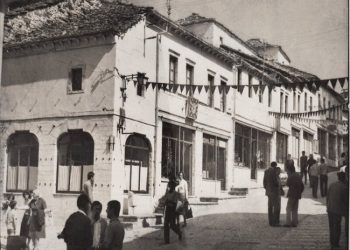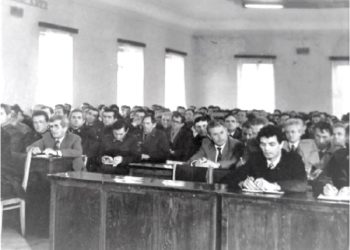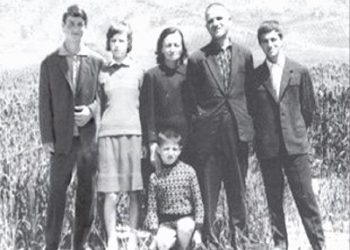By Dashnor Kaloçi
Part five
Memorie.al / From the end of November 1944, when he came to power, until his death in 1985, the communist dictator Enver Hoxha, wanting to resemble his idol, Joseph Visaranovic Stalin, and following his “path”, from time to time undertook purges in the top leadership of the Albanian People’s Liberation Army, which he began with Koci Xoxe (and his group) in 1948-49 and ended in 1981-82, with the so-called “Hostile Group of Mehmet Shehu and Kadri Hazbiu”. In this time interval of more than four decades (he began the purges in 1941), as is now known, he eliminated almost all the founders of the Albanian Communist Party, members of the Political Bureau of the Central Committee of the Albanian People’s Party and the main leaders of the so-called “Anti-Fascist National Liberation War”, so much so that from 1960 until the collapse of the communist regime in 1990, only Pilo Peristeri had escaped prison or exile, enjoying the privileges of a lifelong candidate of the Political Bureau and the function of director of the “Enver Hoxha” Autotractor Combine!
But, unlike what he had done until the beginning of the 70s, where Enver Hoxha’s “sword” had mainly fallen on the senior leadership of the CPSU (Koci Xoxe, Kristo Themelko, Sotir Vullkanim Ramadan Çitaku, Tuk Jakova, Bedri Spahiu, Liri Gega, Gjin Marku, Koço Tashko, Liri Belishova, etc.), whom he had accused of “deviators of the Party line” and had condemned as “traitors and enemies of the people”, in the mid-70s, the dictator Enver Hoxha began to attack several members of the Politburo, who also held ministerial positions, such as Abdyl Këllezi and Koço Theodhosi, accusing them of being “saboteurs” of the Socialist Economy!
And just as he had done with Beqir Balluku, Petrit Dume and Hito Çako, (who were sentenced to death and shot), where to prove “their hostile activity”, Enver Hoxha sentenced to prison and exile a large group of senior officers, as well as the so-called “Saboteur Group of the Economy”, where in addition to Këllez and Theodhos, the two ministers Kiço Ngjela and Vasil Kati were also part, several senior officials of the Trade sector, directors and well-known specialists, such as Andrea Manço, Ahmet Jegeni, Bardhyl Frashëri etc., were also accused and sentenced, as well as of the Oil sector, such as; directors, engineers and well-known specialists, such as; Filip Nashi, Beqir Alija, Koço Plaku, Milto Gjikopulli, Protoko Murati, Dhimitër Stefa, Jani Konomi, Nuredin Skrapari, etc.
As we will see in the documents in question, the investigative process against the so-called “Saboteur Group of the Economy”, which was carried out by the Ministry of Interior and State Security, with fabricated accusations and evidence false or obtained under torture, etc., continued the Supreme Court of the People’s Republic of Albania headed by Aran Çela, “channeling” the accusations also from the “legal” side, to “confirm” what Enver Hoxha had said in the Plenums of the Central Committee of the Albanian People’s Party, against Abdyl Këllez, Koço Theodhos, Kiço Ngjela, Vasil Kati, etc.
As for all of the above, after the 90s, much has been said and written about all of them, both by members of those “groups”, their families, etc., etc., Memory. al has obtained the archival documents of the Supreme Court of the People’s Republic of Albania of that time and the former Presidium of the People’s Assembly, where the “Hostile Group of the Economy”, “Trade” and “Oil” were examined, which see the light of day for the first time, documents which we are publishing together with the relevant photos and facsimiles.
In the first part and second of this series of articles, we are publishing documents concerning the former director of Makina-import, Andrea Manço, originally from the village of Boboshticë in Korça, whose brother Todo Manço, for years had served as chief engineer and director of the Bulqiza chrome mine, and also for several legislatures in a row as a deputy of the People’s Assembly, who when he passed away on November 6, 1974, was given a magnificent funeral ceremony, with homage in the center of the capital, where, in addition to Enver Hoxha, the entire senior leadership of the Albanian People’s Party, headed by Prime Minister Mehmet Shehu, participated. While Todo Manço, (“Hero of Socialist Labor”) would receive all these honors, his brother, Andrea, about two years later, would be tortured in the cells of the State Security and sentenced to death by firing squad, as an “enemy of the people” and “agent of the secret services” “foreign”, and his grave has not yet been found!
Continued from the previous issue
REPORT OF THE SUPREME COURT PRESIDED BY ARANIT ÇELA, SENT TO THE PRESIDIUM OF THE PEOPLE’S ASSEMBLY, ON THE TRIAL PROCESS AGAINST THE “ENEMIAL GROUP” IN THE OIL SECTOR, PRESIDED BY FILIP NASHI, KOÇO PLAKU AND MILTO DJIKOPULLIN
REPORT
PEOPLE’S REPUBLIC OF ALBANIA Tirana on 21.6.1976
SUPREME COURT
No.381
Presidium of the People’s Assembly
Tirana
The sabotage actions carried out in existing oil fields with the aim of depleting the country of oil have resulted in the following consequences:
In Visoka, 70% of the wells in use have been flooded, covering 85% of the oil-bearing surface; in Ballsh, 65% of the wells in use have been flooded, covering 70% of the oil-bearing surface; in Gorisht-Kocul, 20% of the wells in use have been flooded, covering 18% of the oil-bearing surface. During the fifth five-year plan, 515,227 tons of oil has been extracted from existing oil fields, as a result of their barbaric exploitation, more than the five-year quota.
- The defendants Filip Nashi, Beqir Alija, Koço Plaku, Milto Gjikopulli, Protoko Murati, Dhimitër Stefa and Jani Konomi, have also committed the crime of agitation and propaganda against the people’s power, developing it in various forms and means.
- The defendants Filip Nashi and Beqir Alija, by intentionally and with hostile intent violating the decision of the Secretariat of the Central Committee of the Party No. 37 dated 20.1.1962 and the Government Ordinance No. 1282 dated 20.6.1973, “On the discipline of orders, arrival and administration of foreign literature”, have introduced into the libraries of the oil system foreign literature with bourgeois-revisionist and hostile content, in some of which it openly speaks against the Party of Labor of Albania and the People’s Republic of Albania; against the Chinese Communist Party of the People’s Republic of China, against the Marxist-Leninist and progressive forces in the world. These books have been allowed to be read freely, as well as others with a pronounced pornographic content.
- The defendants Filip Nashi, Beqir Alija and Milto Gjikopulli have translated and disseminated through the “Information Bulletin” several articles by Soviet revisionist authors with hostile content, also recommending the implementation of Soviet guidelines in the field of oil exploration in our country.
- The defendants Filip Nashi, Beqir Alija, Koço Plaku, Milto Gjikopulli and Protoko Murati have written, separately and together, various articles that have been published in the magazine “Nafta e Gazi”, where their hostile views are clearly expressed, the fight of our Party against the Yugoslav and Soviet revisionists and internal enemies who have sabotaged our oil industry is denied, the Soviet saboteurs are defended, expressing their so-called anti-scientific concepts that “discredited them as specialists” in our country and it is not openly stated that they have sabotaged oil and gas exploration in our country.
- They have held conversations with hostile content and have commented on the news of enemy radio stations, to the detriment of the People’s Republic of Albania.
III. The defendants Koço Plaku and Milto Gjikopulli were also found guilty of treason in the form of espionage, as they were former agents of Soviet Intelligence. Milto Gjikopulli was recruited as an agent in 1959 by the Soviet “pedagogue” Pjetër Leonti Digezvinski, from whom he received the task of leaving the University and entering the oil industry.
In 1961, through another agent “specialist” in oil, he received the task of sabotaging oil exploration, an order that was repeated to him in 1966 by his sister-in-law, Elvira Babicenko – an agent of Soviet Intelligence.
Also in 1971, when he was returning from the People’s Republic of China to Albania, at the Moscow airport hotel, he was ordered by the Soviet agency to continue sabotage in research, by designing wells with a low level of safety and high cost, to sabotage in the field of exploitation and processing, by violating technology to cause breakdowns and fires.
The defendant Milto Gjikopulli, who has long been in the service of the Soviet revisionists and until his arrest, has developed concrete sabotage activities, especially in the field of oil and gas exploration as a designer, author, co-author and member of the Scientific Council of the Institute.
Even Koço Plaku, despite his denial, was proven to have been put in the service of Soviet intelligence by the “specialist” Kozerjev and, like Milto Gjikopulli, he constantly and conscientiously carried out the assigned tasks, sabotage, especially in the field of oil and gas exploration.
He himself was the author of projects for a number of wells that did not yield results, he acted as a co-author in several projects, as head of the generalization cabinet at the Institute he deliberately passed unprepared projects with the complex of works to the Scientific Council and always approved them.
- The defendants Filip Nashi and Beqir Alija, while holding managerial positions in the General Directorate of Petroleum and the Institute of Petroleum and Gas; they also abused their official position, distributing various equipment and machinery outside the oil system.
The trial established that the hostile sabotage activity of all the defendants has extended to all sectors of the oil and gas industry, has severely damaged the socialist economy, the country’s defense capability, has ultimately aimed at overthrowing the people’s government and as such represents a great social danger.
Based on numerous facts, on concrete actions of the enemy-saboteur group, on what its participants themselves claimed, the court concluded that their sabotage activity is a continuation of the previous sabotage activity carried out in the oil and gas industry and especially a direct continuation of the hostile-saboteur work carried out in this sector by the Khrushchevite revisionists, while the defendants Koço Plaku and Milto Gjikopulli, as saboteurs, acted as agents of Soviet Intelligence.
It also emerged that the sabotage activity in the oil industry is linked to the hostile and anti-party activity developed in our country in recent years in the ideological field, as well as to the hostile conspiratorial and putschist activity in the army, led by Beqir Balluku, Petrit Dume and Hito Çako.
In determining the social dangerousness of the defendants, the court took into account the fact that in the instigation, extension and intensity of the sabotage activity, as was proven by the entire investigation and trial of the case, a particularly important role was played by the enemies of the people; Abdyl Këllezi, Koço Theodhosi, Beqir Balluku and Pirro Gusho.
With decision No. 13 dated June 17, 1976, the Supreme Court sentenced the defendants Koço Plaku and Milto Gjikopulli to death, because their sabotage activity is an inseparable part of their activity as agents of the Soviet revisionists. / Memorie.al
Tirana, 21.6.1976




